Ever wondered how much that cherished morning coffee cup weighs and why it matters? The weight of your coffee cup plays a subtle but significant role in your brewing ritual.
From the robust stoneware mug that keeps your brew warm to the light glass cup that cools your espresso quickly, each weight can influence the coffee’s flavor and experience.
Discover how choosing the right cup weight improves your brewing process, affects heat retention, and directly affects your coffee enjoyment.

The weight of your favorite cup isn’t just about the feel—it’s about perfecting your coffee from grind to sip. Let’s get into the world of coffee cups and uncover the secret weight that could transform your morning brew!
Types of Coffee Cups and Their Weights
1. Disposable Paper Cups

Disposable paper cups are a common choice for on-the-go coffee drinkers. These cups are lightweight, usually weighing between 5 to 15 grams.
They are convenient for single servings and are often used in coffee shops for hot drinks like lattes and cappuccinos.
However, their environmental impact is a concern for many coffee lovers, and there’s a growing preference for reusable cups.
2. Reusable Plastic Cups

Reusable plastic cups are a more sustainable option compared to disposable paper cups. These cups typically weigh between 50 to 100 grams, depending on their size and thickness.
They are durable and can be used for both hot and cold drinks, making them a versatile choice for coffee enthusiasts who want to reduce waste.
3. Ceramic Coffee Mugs

Ceramic coffee mugs are a staple in many households and cafes. They have excellent heat-retention abilities and can keep your coffee warm for longer periods.
The weight of ceramic coffee mugs varies significantly based on their size and design, ranging from 200 to 500 grams.
These mugs are ideal for hot drinks and are available in various sizes to suit different preferences.
4. Travel Mugs

Travel mugs are made for coffee lovers who need their caffeine fix while on the move. These mugs are usually made from stainless steel or insulated plastic and weigh between 200 to 400 grams.
Their insulated design helps maintain the temperature of your coffee, whether hot or cold, making them perfect for long commutes or outdoor activities.
5. Specialty and Made-to-Order Mugs
Specialty mugs and made-to-order mugs often have unique designs and customizations. Their weight can vary widely, typically ranging from 250 to 600 grams.
These mugs are popular among coffee aficionados who appreciate personalized coffee experiences and often use them as their favorite mug for a perfect cup of coffee. I swear my coffee tastes better when I use my special mug.
Factors Affecting the Weight of a Coffee Cup
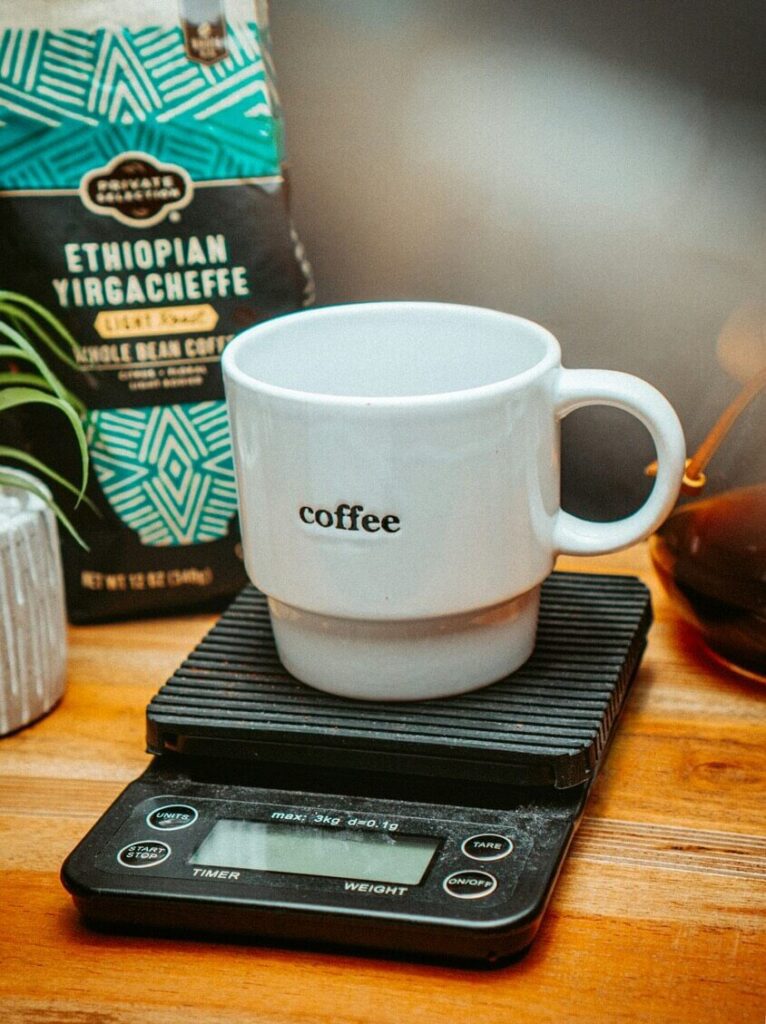
1. Material of the Mug
The material of the mug is a primary factor that influences its weight. Ceramic cups are heavier due to the density of the material, while paper and plastic cups are lighter.
The choice of material not only affects the weight but also the quality of your coffee experience. For example, ceramic mugs can keep hot beverages warm, while plastic cups are chosen for their durability and convenience.
2. Size and Capacity
The size and capacity of a coffee mug play a crucial role in its weight. Larger mugs hold more fluid ounces and naturally weigh more than smaller ones.
Coffee mug sizes can vary from small espresso cups to large travel mugs, each catering to different preferences and brewing methods.
3. Design and Thickness
The design and thickness of a coffee cup also impact its weight. Thicker mugs, which are often more robust and durable, tend to weigh more than thinner, delicate ones.
The design elements, such as handles and decorative features, can add to the overall weight of the mug. Yes, these elements add aesthetics and functionality, but they also add weight.
How Coffee Affects Mug Weight
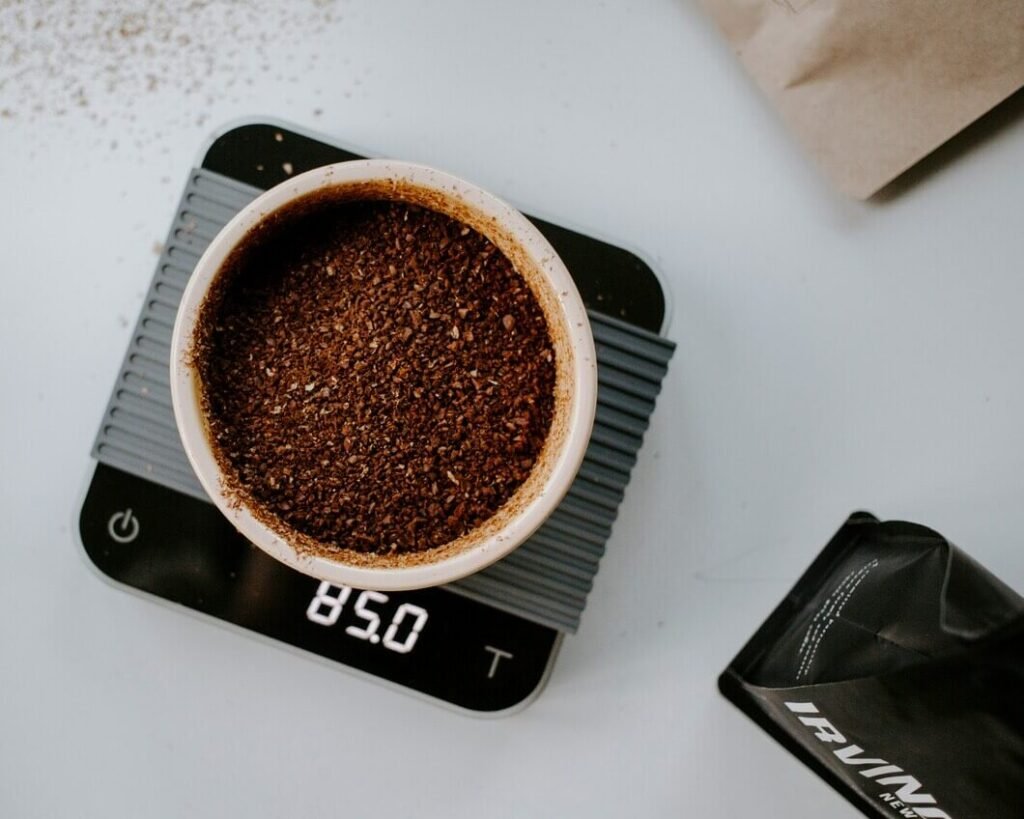
Grams of Coffee and Ground Coffee
The amount of coffee used in brewing significantly affects the weight of the final cup. A standard coffee measure uses 10 grams of coffee grounds per cup, but this can vary based on personal taste and the desired strength of the coffee.
If you’re using a coffee scoop, you know that one scoop typically equals about two tablespoons of ground coffee, which is approximately 10 grams.
This amount is considered ideal for many brewing methods, including the French press and drip coffee maker, as it provides a balanced flavor and a good cup.
Coffee enthusiasts who prefer a stronger brew can increase the amount of coffee grounds. For example, you can opt for 12 to 15 grams of coffee per cup. This variation in the number of grams of coffee directly impacts the weight of the final cup, making it heavier if more coffee grounds are used.
The quality of your coffee beans also plays a role in the weight. Freshly ground coffee beans tend to be more voluminous and slightly heavier than pre-ground coffee, as they retain more of the natural oils and moisture. This can add a few extra grams to the overall weight, depending on the grind size and freshness of the beans.
The type of coffee beans used—whether they are light, medium, or dark roast—can also affect the density and weight of the grounds, which influences the total weight of the coffee cup.
Fluid Ounces and Ounces of Water
The amount of water used in brewing coffee also contributes to the overall weight of the cup. One fluid ounce of water weighs approximately 28.35 grams.
Therefore, a standard cup of coffee, which is typically 8 fluid ounces, will weigh around 227 grams just in water content.
When brewing a full pot of coffee, the total water capacity of your pot can range from 1 to 1.5 liters (or 33.8 to 50.7 fluid ounces), which translates to a water weight of roughly 950 to 1,425 grams.
The total weight of a brewed cup of coffee is a combination of the weight of the water, the coffee grounds, and the mug itself.
For example, using a ceramic mug that weighs about 300 grams, the overall weight of a standard 8-ounce cup of coffee would be approximately 537 grams (227 grams of water + 10 grams of coffee grounds + 300 grams for the mug).
This weight can vary depending on the type of mug, the amount of coffee used, and the specific brewing method employed.
Coffee-to-Water Ratio
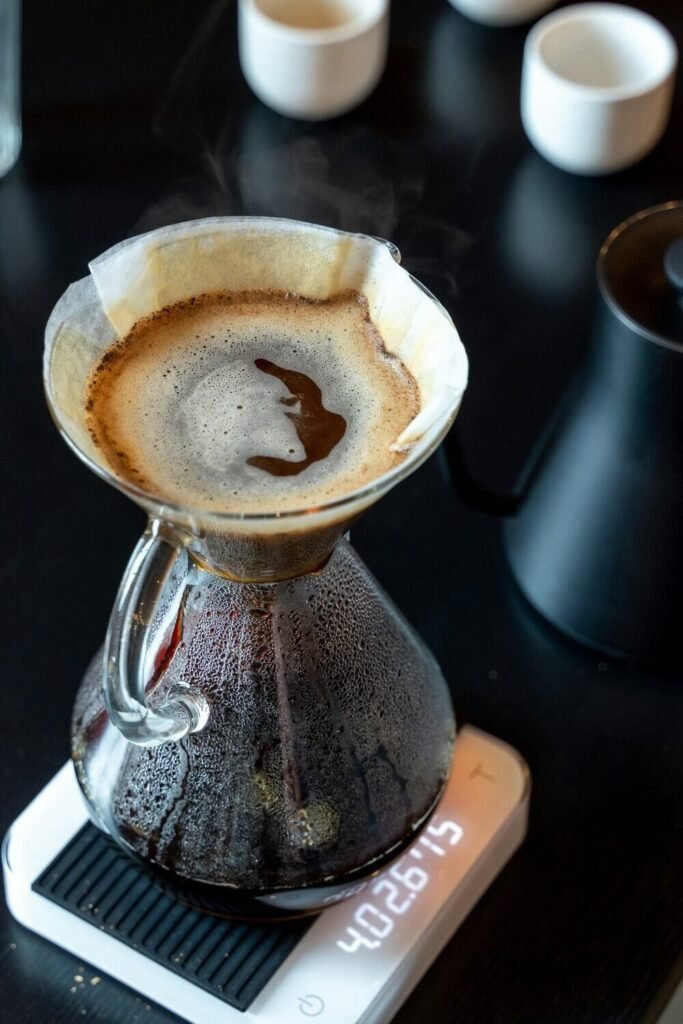
Achieving the perfect coffee-to-water ratio is essential for brewing a great cup of coffee. The Specialty Coffee Association of America recommends a ratio of 1:18, which means 1 gram of coffee for every 18 grams of water.
This ratio helps ensure a balanced flavor and is a general guideline for brewing methods like the French press and drip coffee maker.
Using this ratio, for a standard 8-ounce cup of coffee (227 grams of water), you would use approximately 12.6 grams of coffee.
If you prefer a stronger coffee, adjusting the ratio to 1:15 (one gram of coffee for every 15 grams of water) can result in a more robust brew. On the other hand, a ratio of 1:20 can be used for a milder taste.
The coffee-to-water ratio is not just about the flavor; it also impacts the weight of the final cup. For example, using more coffee grounds will increase the overall weight, as the grounds absorb some of the water during brewing, resulting in a denser cup.
This is especially true for brewing methods that require a longer extraction time, such as the French press or cold brew, where the coffee grounds are in contact with water for extended periods.
Brewing Methods and Their Impact on Mug Weight
French Press
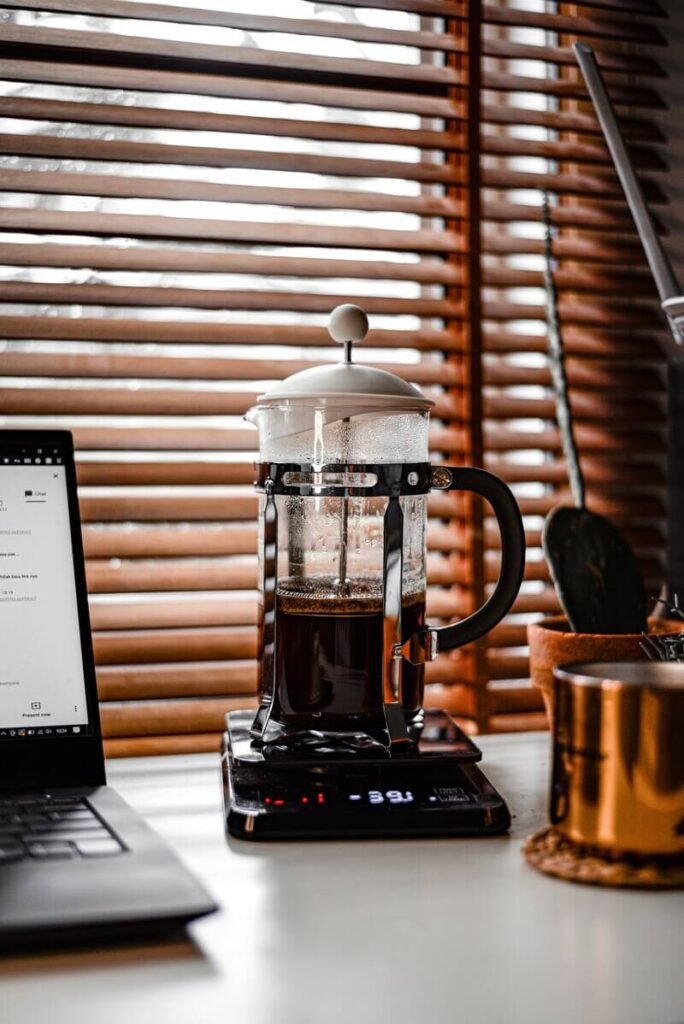
When using a French press, the weight of the coffee cup includes the grams of coffee, grams of water, and the weight of the mug.
Typically, a French press uses 30 grams of coffee and 500 grams (or milliliters) of water, resulting in a cup that weighs approximately 530 grams, excluding the mug.
Drip Coffee Maker

Drip coffee makers are common in many households and coffee shops. They typically use a standard coffee measure of 10 grams of coffee per 6 ounces of water.
For a full pot, which holds about 12 cups, the total weight of the coffee and water can exceed 2,700 grams. This method lets you brew a large amount of coffee at once, making it convenient for serving multiple people.
Other Brewing Methods
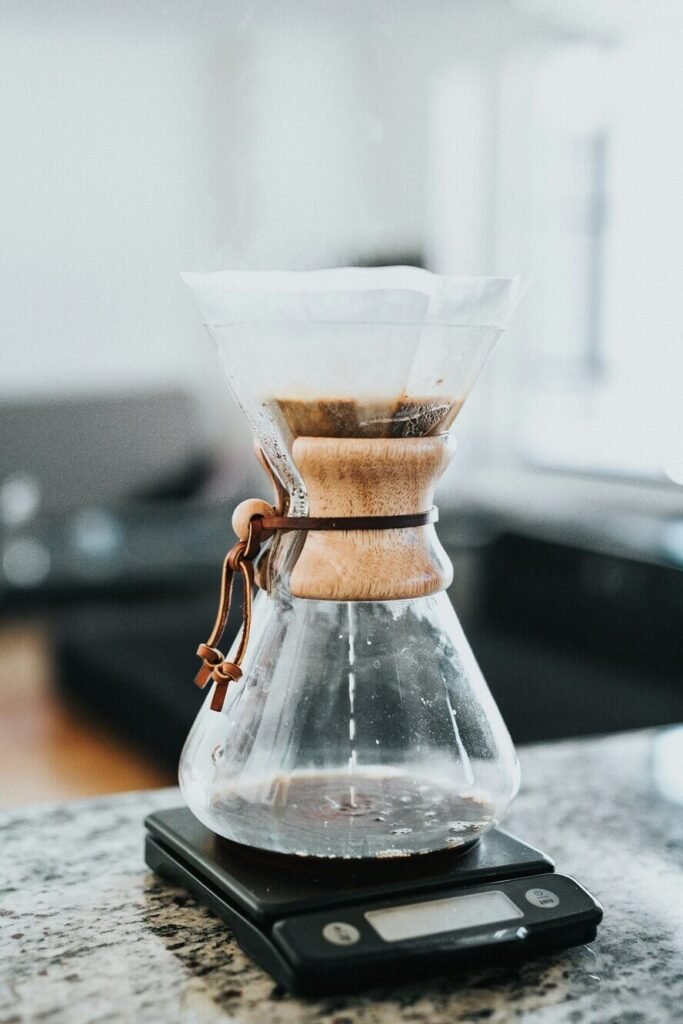
Other brewing methods, such as pour-over and espresso, also affect the weight of the coffee cup. A double shot of espresso uses about 18 grams of coffee and 60 milliliters of water, resulting in a lighter cup compared to drip coffee.
The choice of brewing method impacts not only the weight but also the flavor and quality of your coffee.


Marina is the writer behind CozyCornerCharm. She grew up on Turkish coffee, later discovering specialty brewing through her first V60, which inspired her ongoing coffee journey. She has written for Craft Coffee Spot, Home Grounds, and Barista HQ and now shares her experience here on her own coffee corner.



[…] Also check out: How Much Does a Coffee Cup Weigh? Discover the Surprising Truth! […]